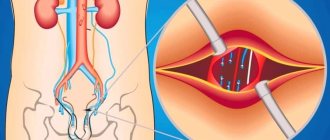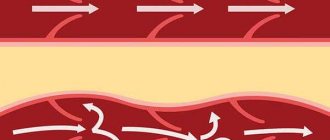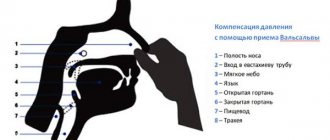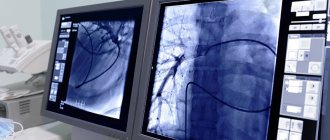For the last 10 years, we have been performing the Marmara procedure on patients with varicocele. The essence of this operation is to ligate the dilated veins in close proximity to the epididymis. This allows you to ligate small veins without the risk of trauma to the spermatic duct and the artery supplying the testicle.
Marmara surgery is performed under local anesthesia and does not require a long recovery period.
Advantages of the Marmara operation
- High efficiency
- Safety - low risk of ligation of testicular arteries, etc.
- Low morbidity - the incision is only about 3 cm long.
- Local anesthesia - none of the risks associated with general anesthesia.
- Short hospital stay (discharge the next day after surgery).
Dilatation of veins of the epididymis
Microsurgery
Binocular magnification
Scrotal incision during Marmara operation
Anesthesia and the course of the operation
We perform Marmara surgery on almost all patients under local anesthesia. Since the spermatic cord lies close to the skin and is easily accessible, a very small skin incision is made.
At the request of the patient or in case of intolerance to local anesthetics, spinal or intravenous anesthesia can be used, but such cases have not been encountered in our practice.
An incision in the skin of the scrotum is made slightly above the projection of the testicle in the projection of the spermatic cord. The length of the incision is 2.5-3 cm. After removing the spermatic cord into the wound, all dilated veins (with a diameter greater than 2 mm) are carefully isolated and ligated. It is important to ligate only the veins without affecting the arteries supplying the testicle.
Since we have to work with vessels with a thickness of 0.5 mm, microsurgical instruments and magnifying optics are used. During the operation, the wound is irrigated with a vasodilator, and the Valsalva maneuver is applied (pushing the patient).
The duration of the operation, including anesthesia, is about 40 minutes. The wound is sutured in layers with absorbable threads; there is no need to remove sutures.
Typically, the patient is discharged the next day. Since rest and lack of physical activity are extremely important in the first 24 hours after surgery, we recommend spending the first 24 hours after surgery in a hospital. The patient is discharged the next day after a follow-up examination by a doctor and dressing.
Recovery period
- In the first 5-7 days after surgery, we recommend staying home and limiting physical activity. For this period, the patient is provided with sick leave.
- The postoperative wound heals in 5-7 days. There is no need to remove the sutures, as they are made of absorbable material.
- Serious physical activity (gym training, long-distance running) should be limited for 2 months. After these two months, the spermogram is re-evaluated.
When is surgery necessary for varicocele?
Marmara surgery is recommended for the following indicators:
- Poor spermogram, which can cause infertility. In practice, operations are performed on all men who have even grade 1 varicocele if the couple wants a child.
- Pain in the scrotum area, which has a pulling nature and intensifies over time. Heaviness and discomfort in the testicle, increasing with walking and physical activity.
- Swollen veins that are easily palpable, which indicates the last stage of the pathology.
Mild varicocele does not affect the quality of life, is not accompanied by pain, and does not cause testicular atrophy, so surgical intervention is not always required. At the time of diagnosis of the pathology, the quality of sperm is not always impaired, so a man can conceive a child. Treatment is required at stages when there are already problems with the generative function, the man wants to preserve fertility in the future, even if no problems were identified at the time of the spermogram.
Preliminary stage
On the eve of surgery, it is necessary to perform hygiene procedures (take a shower, get rid of hair). Another important condition is an empty stomach (dinner will have to be given to the enemy). Be sure to purchase elastic bandages. They wrap the legs before the operation (like a mummy). This is done to prevent the development of varicose veins in the legs.
Before the operation begins, it is also necessary to undergo a number of medical examinations:
- if you have chronic diseases, get advice from treating specialists;
- donate blood and urine for a general analysis, as well as for the detection of hepatitis, HIV infection, syphilis;
- visit the fluorography office, do an electrocardiogram of the heart.
Features of the Marmara method
Microsurgical operation for varicocele is performed under the inguinal ring. The operation is performed under local anesthesia. The doctor palpates the future incision site and then dissects the tissue. The mini-incision does not exceed 3 cm, access is made to the spermatic cord.
Using special tools for spreading the skin, the surgeon pushes the tissue apart and injects an anesthetic under the muscle that lifts the testicle. After this, the spermatic cord and dilated veins are sequentially isolated using magnifying optics on the eyes and an ultrasound sensor.
The doctor ligates problematic veins larger than 2 mm in diameter, without affecting the vas deferens and arteries supplying blood to the testicle. The patient is asked to perform the same actions as during the Valsalva maneuver - hold the breath as you exhale so that imperceptible enlarged vessels can be seen. After ligation, the veins of the spermatic cord are immersed in the wound and it is sutured with a “cosmetic” suture, which over time becomes invisible on the body.
Doctor's comment
Changes in spermogram and infertility - today such pathology is completely removable. If you have been diagnosed with varicose veins of the testicle, you should not wait until the disease takes on an advanced form, which will result in problems with reproduction. There are several treatment methods, one of the most effective is the Marmara operation; varicocele can be eliminated painlessly within half an hour through a small, no more than 2 cm, incision in the inguinal ring area, and there is no need for long hospitalization. After recovery, it is almost impossible to detect traces of the operation on the skin. In our clinic, each patient can count on an individual approach and confidentiality. After the examination, we select the most effective treatment method in your case. If you delay, the chance of a full recovery may decrease, resulting in you having to resort to artificial methods to conceive. Therefore, do not delay your visit to the doctor, do not deprive yourself of the opportunity to live a full life!
Surgeon urologist Dmitry Olegovich Jalilov
Postoperative period
Recovery after Marmara surgery is considered one of the fastest and easiest. During the postoperative period, it is important to follow certain rules:
- Refuse sexual activity.
- Reduce physical activity, do not lift heavy objects.
- If prescribed by a doctor, wear a bandage to support the scrotum.
- If you feel any discomfort, take a pain reliever.
Subsequently, a man can completely return to his usual lifestyle, reducing the number of sexual acts to one per week (for about a month). Complete restoration of the internal structures of the scrotum occurs after three months, so possible injury to the organ and overheating should be excluded: do not take hot baths or visit saunas, and avoid long bicycle rides.
Necessary examination for hospitalization
- Ultrasound of the scrotum with Dopplerography of blood vessels.
- Spermogram.
- Biochemical and clinical blood test; coagulogram; Analysis of urine.
- Blood test for hepatitis B, C, HIV, syphilis.
- Fluorography; ECG (electrocardiogram).
| Service | Price |
| Operation Marmara | 20,000 rub. |
| 02.02.01.135 - 2-bed ward | RUB 2,790 |
Advantages of the microsurgical method
The Marmara operation is one of the best modern methods of treating varicocele, which has a number of advantages:
- Precision of surgical procedures and minimal risk of relapses and complications.
- The cosmetic seam with self-absorbing threads is subsequently not noticeable.
- The small size minimizes the risk of infection and damage to healthy tissue.
- After the operation, the patient does not stay in the hospital; he makes dressings at home.
- The man does not feel severe pain at the incision site because the nerve endings are not affected.
The technique of performing the Marmara operation requires highly qualified doctors and equipment, so it is not performed in many clinics. Thanks to this method, many couples increase their chances of pregnancy, and the man’s normal lifestyle is restored.
CENTER FOR UROLOGY AND ANDROLOGY
Treatment of varicocele according to Marmar is considered the gold standard for the treatment of this pathology. Until microsurgery was sufficiently developed, other operations for the treatment of varicocele provoked the development of serious complications in the form of testicular atrophy and the development of dropsy. The marmara operation for varicocele refers to the microsurgical method of treating pathology. Varicocele surgery is performed using a small microscope. This helps reduce the risk of recurrent varicocele development and reduce the likelihood of serious complications.
Indications for the procedure
The main indication for surgery is the development of varicose veins in the area of the spermatic cord at stages 1-3. In addition, indications for the procedure may be as follows:
- The development of pain during urination.
- Constant pain in the scrotum area.
It is known that the disease may not manifest itself in any way for a long period of time and the patient does not even suspect the presence of such a problem. One of the serious complications of this pathology is the development of male infertility. In such a situation, only surgical intervention will have the proper therapeutic effect. Therapy should be started as soon as possible after the pathology is identified.
Main goals of treatment
Marmara surgery is a minimally invasive treatment method, which means it does not require extensive incisions, compared to other abdominal surgeries.
During the treatment of varicocele, marmara surgery has the following main objectives:
- Ligate or excise the affected vein in the testicular area.
- Restore normal blood flow to the affected area.
- Surgery for varicocele along the marmara is performed to eliminate the cause that provoked the problem and to reduce the risk of relapse.
When treating varicocele, all manipulations are carried out using general or epidural anesthesia, or using local anesthetics. The strategy for anesthesia and other manipulations using the marmara technique is discussed with each patient individually, taking into account the degree of development of varicocele and the results of the examination.
What are the advantages of this technique
DURING THE THERAPY OF VARICOCELE, THE MARMARA OPERATION DEMONSTRATES SUCH HIGH EFFICIENCY DUE TO HIGH-QUALITY MODERN INSTRUMENTS: 1) BINOCULAR, WHICH IS USED DURING THE WHOLE OPERATION; 2) MICROSURGICAL INSTRUMENTATION.
When identifying varicocele, marmara surgery has a number of significant advantages in comparison with other types of operations and treatment methods. These include:
- Marmar surgery can be performed on an outpatient basis and does not involve hospitalization.
- During marmar surgery, the doctor makes a very small incision in the groin area. Subsequent scar formation will occur in an area with increased vegetation.
- After a marmara operation is performed, the risk of re-development of the pathology is minimal and is less than 4-6%.
- The rehabilitation period after marmara surgery takes little time. A man can quickly return to his normal lifestyle after the operation.
- The operation occurs without significant blood loss.
- The surrounding soft tissues are practically not subject to unnecessary injury.
- During the operation, the doctor uses a special microscope that allows you to bypass the arteries. During other surgical treatments for varicocele, the risk of damage to the arteries of the testicle is up to 35-45%, which leads to disruption of its nutrition and the development of serious complications.
- After the operation, varicocele not only does not recur, but also restoration of male fertility is observed.
- Modern experts prefer this method of therapy.
After the marmara operation is performed, the patient has virtually no pain. The inflammatory process develops extremely rarely and is mainly due to the patient’s failure to comply with the recommendations of the attending physician.
Patients can become familiar with the Marmara technique before undergoing the procedure.
Differences between the Marmara technique and other treatment methods
Unlike therapy methods, for example, according to Ivanisevich, the Marmara technique demonstrates the following advantages:
- Low trauma.
- The length of the incision does not exceed a few centimeters.
- This method is more modern and effective.
- There is a layer-by-layer access to the inguinal canal area.
- During the procedure there is no need to penetrate the peritoneal area.
- The doctor should not make an incision in the abdominal area.
- After all the manipulations are completed, there are practically no scars or scars left.
OTHER CAVITY AND LAPAROSCOPIC METHODS CANNOT PROVIDE SUCH EFFECTIVENESS AND MINIMUM RISK OF COMPLICATIONS.
DURING THE PERFORMANCE OF A MODERN MINIMALLY INVASIVE PROCEDURE, THE DOCTOR HAS THE OPPORTUNITY TO QUICKLY FIND AND LIGATE DAMAGED VEINS IN THE INGUINAL CANAL AREA. FOR THIS REASON, THE RATE OF RECURRENCE IS MINIMAL.
According to the results of international studies, this minimally invasive technique helps restore reproductive function in males several times more often than other surgical methods of therapy.
How the procedure is performed
The marmara operation allows for the treatment of both right-sided and left-sided forms of varicocele. There is no need to stay in the hospital after the procedure. The patient can return home the same day.
The marmara operation is carried out as follows:
- The surgeon makes a small incision in a place located under the inguinal canal. There, the testicular veins are divided into several main trunks.
- Next, using a special microscope instrument, the doctor identifies and bandages each section of the trunks individually. The lymph nodes are not affected.
- During all manipulations, the structures of the spermatic cord are under significant optical magnification, which allows all actions to be performed as carefully as possible, without injuring the surrounding tissues.
- The duration of all manipulations takes about 35-45 minutes.
- In the future, the patient must remain under the supervision of medical personnel for several hours. In most cases, the patient is discharged home the same day.
In most cases, doctors prefer local anesthetics and refrain from using general anesthesia. When performing marmara surgery, the patient does not feel pain in the testicular area. In some cases, there may be a slight tugging sensation that does not cause significant discomfort. A similar effect can occur at the moment when the surgeon pulls out the spermatic cord. During the operation, some patients may simply fall asleep and wake up after all the necessary manipulations have been completed.
Preparatory stage
Particular attention should be paid to preparing the patient for marmara surgery. The patient should shave the hair in the scrotum and pubic area 12 hours before the procedure.
If during the treatment of varicocele the operation will be performed under general or spinal anesthesia, then the patient should not eat food or any liquid 6-8 hours before the procedure. The Marmara operation is carried out in this case strictly on an empty stomach.
Recovery period
The Marmara operation allows you to cure a patient literally in 1 day without a significant risk of complications or relapse of the pathology. The recovery period after marmara surgery is quite easy for most patients, without complications. After all the manipulations have been carried out, a man should not significantly change his daily routine or established lifestyle.
During the first few days after the operation, patients are advised to refrain from any physical activity. You will also have to significantly reduce excessive physical activity over the next few months.
In rare cases, the following complications have been reported after surgery:
- Bleeding.
- Wound infection.
- Development of dropsy.
- Recurrence of the disease.
After the operation is performed, the patient will be advised to undergo regular physical examination by his attending physician so that he can be convinced of the effectiveness of the therapy. The patient will also have the bandage changed and the wound healing process monitored. Sutures are removed 1 week – 14 days after the procedure.
Necessary examination
When treating varicoceles, the Marmara technique is carried out only after a comprehensive examination:
- General blood analysis.
- General urine analysis.
- Blood chemistry.
- Carrying out a coagulogram.
- Determination of blood group and Rh factor.
- After identifying antibodies to hepatitis, HIV infection, after a reaction to syphilis.
Patients should take into account the fact that tests also have an expiration date: no more than 14 days from the date of their implementation.
IF THE MARMAR TECHNIQUE FOR VARICOCELE IS CARRIED OUT WITH SPINAL ANESTHESIA, THEN AN ELECTROCARDIOGRAM MAY BE REQUIRED, AS WELL AS CONSULTATION AND AN OPINION FROM A THERAPIST REGARDING READINESS MEN TO CARRY OUT THE PROCEDURE.
Main contraindications
The marmara technique for varicocele has a number of contraindications that must be taken into account:
- The Marmara procedure is not performed if the patient has a history of uncontrolled hypertension.
- During exacerbation of chronic diseases: for example, stomach and duodenal ulcers. In this case, the Marmara operation can be postponed until remission occurs and the patient’s well-being improves.
- In case of serious disturbances in the normal functioning of the blood coagulation system. If the patient is taking medications from the group of anticoagulants, then their use should be stopped no later than 10-14 days before the marmara operation.
- Recovery period (at least six months) after a heart attack, stroke or coronary heart disease.
The Marmara technique is also not used in the case of acute respiratory diseases or influenza.
Conclusion
In some cases, in the process of performing all the described manipulations, complications may arise in the form of bleeding. A similar reaction develops if the surgeon grabs the sutures or touches the nerve endings located in the area of the inguinal canal. If the surgeon strictly follows all the technique of performing the procedure, then such side effects can be avoided. For this reason, it is recommended to entrust the process of performing marmara surgery to a qualified and experienced specialist who has previously performed similar procedures.
Among the disadvantages of this treatment method, one can highlight the rather high cost of the procedure. However, given the degree of effectiveness, preference should be given to providing quality treatment whenever possible.
Possible complications
Cases of complications after the Maramara operation are rare. Very rarely possible
- edema
- minor bleeding
- inflammation due to infection, which is relieved by taking antibiotics
- hydrocele (hydrocele), which can be relieved by wearing a bandage or tight underwear
- an allergic reaction to suture threads, which can be easily treated with antihistamines.
As for relapses, after an operation performed by an experienced surgeon, they practically do not occur. Therefore, when choosing a clinic and a doctor, it makes sense to rely on real patient reviews.







